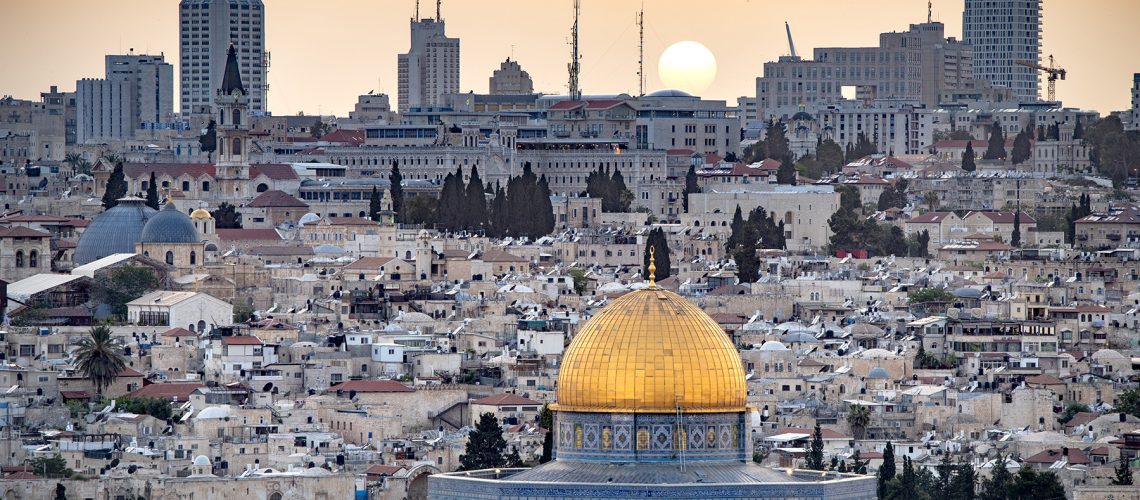Nov. 15. 2021
TO: Members of Knesset, Members of Cabinet
FROM: Maj. Gen. (Ret.) Matan Vilnai
Re: The US Consulate and Israeli Security
Dear MKs, Cabinet Members;
In his parting words upon retiring from the leadership of the Shin Bet (Israel Security Agency), Nadav Argaman said the following: “As it stands, the Hamas is strong, the Palestinian Authority (PA) is weak.” He added that “The PA is weak economically and in terms of public support.” He called upon the Israeli government to “find a way to cooperate with the PA.”
The government appears to share Argaman’s view that a well-functioning PA, whose security agencies – credited by the Shin Bet and IDF for having saved the lives of countless Israelis – is an Israeli national security interest and serves other national interests as well. This understanding has been at the root of what our Prime Minster, Foreign Minister and Minister of Defense have dubbed as a policy of “shrinking the conflict” and “strengthening the PA.”
(These very concepts are elaborated upon in some detail in the CIS forthcoming policy recommendation titled “Initiative 2025.” It is to be presented to the government, the Knesset and the general public in a few weeks.)
In line with that approach, the government has already taken steps to prevent the economic collapse of the PA, and is said to be considering additional measures. Furthermore, the government seems to also share Argaman’s concern with diminishing support for the PA among its constituents, hence has taken some steps — such as issuing building permits for Palestinians in Area C — intended to improve the public standing of the PA.
However constructive, it is quite clear that given the Argaman warning about growing Hamas strength and popularity on the West Bank, these and similar steps are hardly enough to shrink the conflict, strengthen the PA, insure its security agencies’ coordination with ours, or secure overall stability.
This is but one context in which to view the issue of the reopening of the US consulate in Jerusalem. Indeed, a broad national security approach calls for looking at it in three contexts:
1. The effect of the government’s position on its stated objective of “strengthening the PA” and, consequently, on our security.
2. The effect of its position on our strategic relationship with the United States.
3. Its effect on the future of Jerusalem.
Regarding the first, it should be noted that few political/diplomatic measures – with no security downside – can make a greater contribution to strengthening the stature of the PA among Palestinians, stabilize its governance capacity and hence secure the continuity of security coordination, more than reopening of the American consulate.
As to the second context, the government should weigh carefully the effect of opposing the American move at a time when our leaders are united in the wish to improve relations with the Democratic party in the service of our vital national security interest of restoring the bipartisan support we enjoyed until no too long ago.
Established in 1844, the US consulate operated continuously for 170 years (until two years ago), yet since 1967, no Israeli government saw any problem with its existence. With an American president whose support for Israel is unquestioned, and with a congress that just approved an additional billion dollars for Iron Dome replenishment (above and beyond the annual $3.8 billion), the costs and benefits of opposing reactivating the consulate must be carefully calculated. When doing so, it is worth noting also that the consulate reopening is bound to upgrade the US-PA dialogue, thus enhance Washington’s capacity to affect PA policies on matters of importance to Israel.
The third context reflects our tendency to artificially inflate issues to existential proportions: it was not the existence of the consulate that divided Jerusalem; its closure did not unite the city; nor will its renewal affect in any way the freedom of sovereign decisions of this or future governments regarding the fate of the city.
Against that backdrop, you will do well to consider the contribution of renewing consulate operations on our security — given its positive effect on the stability of the PA and its security coordination with our forces, and on the strategic objective of restoring bipartisan support for Israel in Washington.
And while we are at it, let’s keep a healthy sense of proportion regarding the effect of the existence of a consulate on future sovereign Israeli decisions.
Sincerely,

Maj. Gen. (Ret.) Matan Vilnai
Chair

CIS (Commanders for Israel’s Security) is a non-partisan movement dedicated to securing Israel’s future as a strong Jewishdemocracy by a security-based separation from the Palestinians enroute to a negotiated two-state solution.
Its over 300 members are retired IDF generals as well as Mossad, Shin Bet, Police and NSC equivalents.
en.cis.org.il

